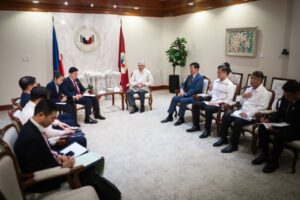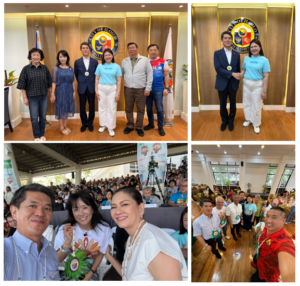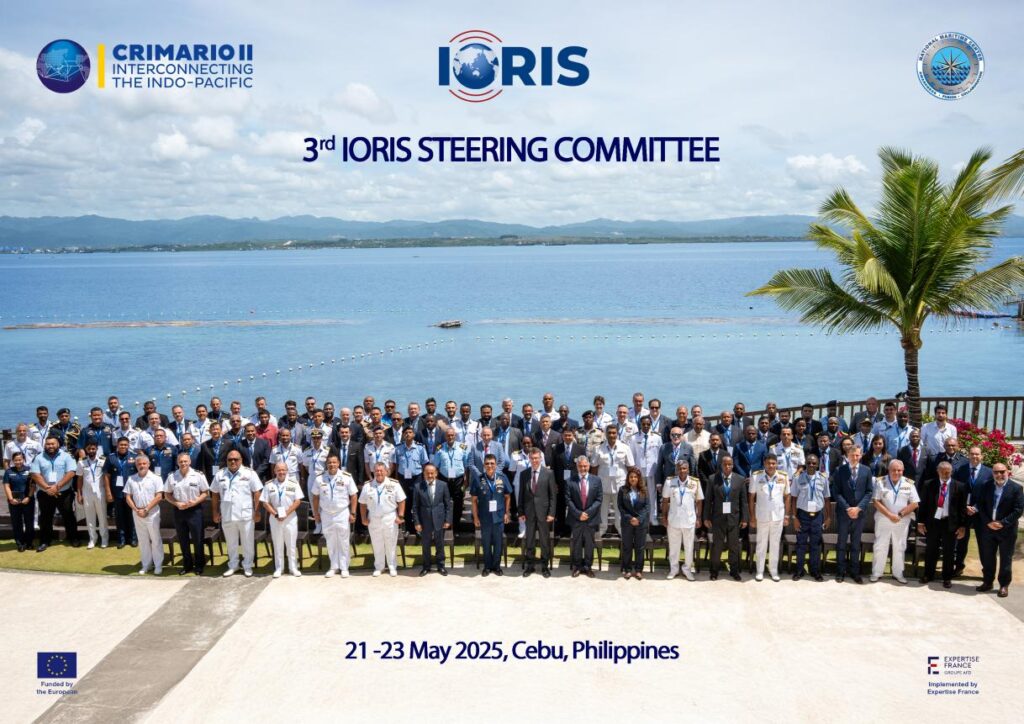
More than 100 officials representing over 50 countries in the Indo Pacific is holding a three-day meeting in Cebu to strengthen the multinational governance of IORIS — the European Union-funded Indo-Pacific regional information-sharing platform, developed and implemented by the EU-funded CRIMARIO project since 2018.
Participants will deliberate on key policy areas and opportunities to enhance cooperation from the east coast of Africa, across Asia and the Pacific to Latin America.
Organizations and entities using IORIS will present a range of success stories, demonstrating the real-world impact of the IORIS platform. Notable examples include the interdiction of narcotics and other contraband; life-saving interventions during complex Search and Rescue (SAR) operations and coordinated counter-piracy efforts; and addressing cooperation to combat illegal, unregulated and unreported fisheries.
The conference will launch the new IORIS platform, emphasising its user-friendliness and advanced functionalities which has and will further facilitate seamless communication, coordination, and decision-making across diverse maritime stakeholders.
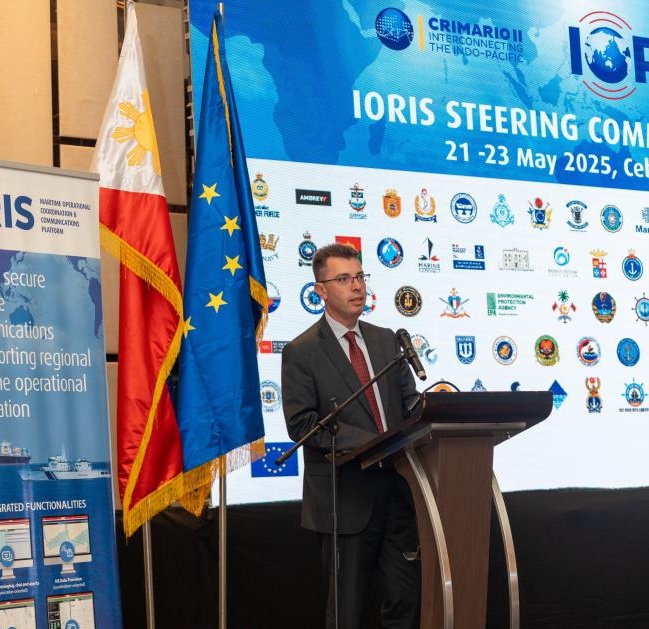
In his opening remarks, EU Ambassador to the Philippines Massimo Santoro said, “This collaboration underscores the European Union’s enduring commitment to a peaceful, secure, and rules-based maritime order in the Indo-Pacific, built on a foundation of the rule of law and respect for the UN Charter. We are proud to support regional partners in building capabilities that ensure freedom of navigation and maritime resilience.”
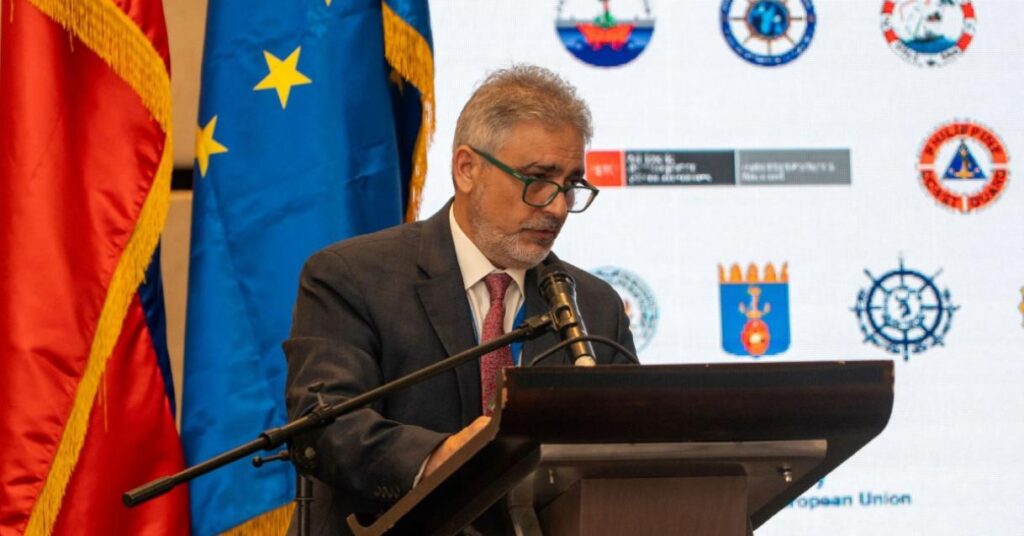
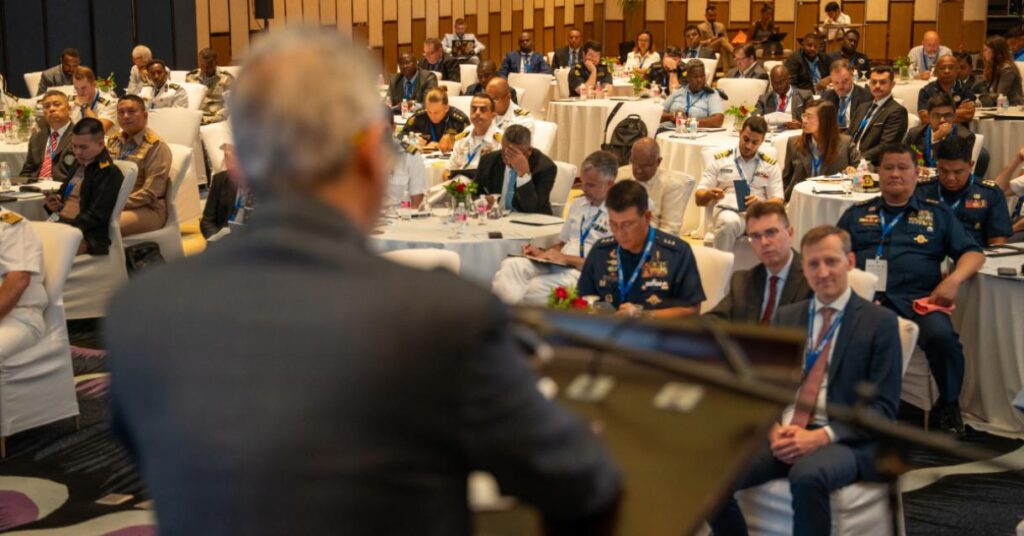
For his part, CRIMARIO II Project Director Martin Cauchi Inglott noted, “A key area of discussion will be centred on enhancing connectivity between merchant shipping, naval forces, and coastal states. This was notably demonstrated by the success of IORIS in the Red Sea, where the platform facilitated communication among accompanying over 130 vessels since the crisis in the Red Sea. This is why for the first time the maritime industry participates as observer during selected sessions of the meeting: a crucial step toward fostering closer collaboration between industry and government stakeholders.“
On May 23, the final day of the meeting, participants will witness the ALALAYAN III maritime exercise organized by the National Maritime Center, involving some 20 Philippine agencies. The objective of this exercise is to test and enhance the interoperability among national and local agencies and demonstrate their capability to coordinate and render support in identifying and fighting maritime threats. Communication and coordination among all agencies will be managed through IORIS, showcasing the platform’s ability to interconnect agencies at both the national and regional levels.
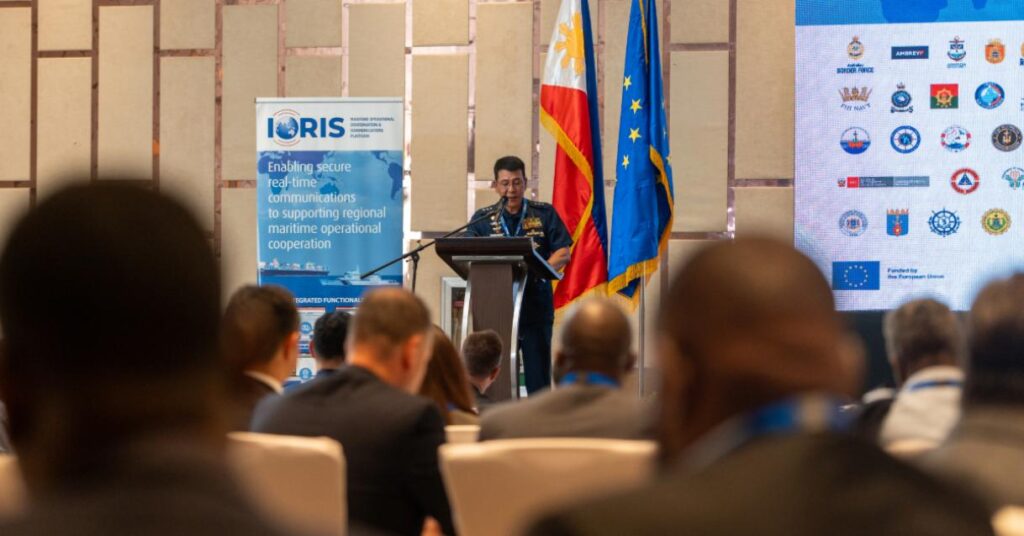
National Maritime Center Director Vadm Roy A. Echeverria concluded, ”Over the next days, we will see what happens when agencies come together — not just to comply with protocols, but to truly collaborate, listen, adapt, and work side by side. This year’s exercise is not just about drills or simulation; it reinforces a shared truth: no single agency or country can address maritime challenges alone. Our strength lies in our unity, in our commitment to a whole-of-government and whole-of-nation approach, and in our partnerships — both local and international.”
“As this important event concludes, we celebrate not just its success, but the lasting partnerships and trust we’ve built across the Indo-Pacific in the past years. The tools, knowledge, and networks developed will continue to support regional maritime security and safety in the years to come,” said Ondrej Vosatka, Program Manager at the Foreign Policy Instrument, European Commission.
(photos courtesy of CRIMARIO via EU official website)
